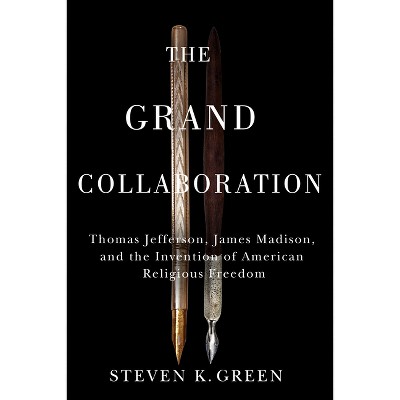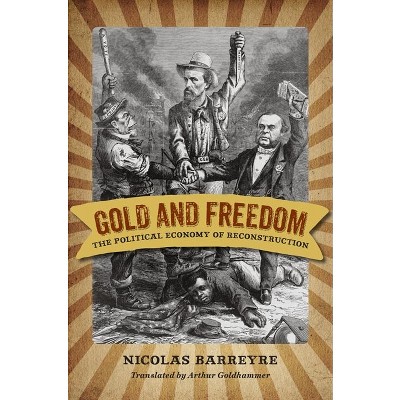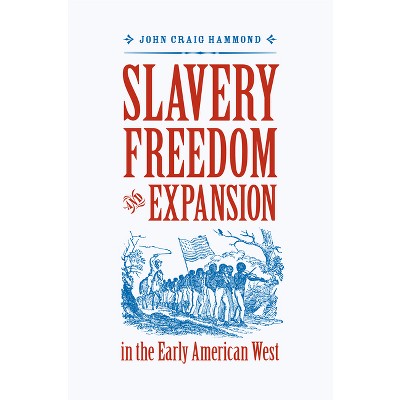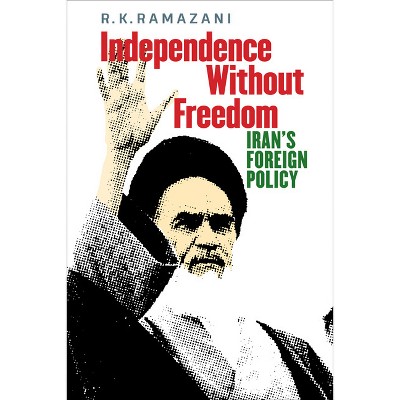About this item
Highlights
- The history of African Americans in southern Appalachia after the Civil War has largely escaped the attention of scholars of both African Americans and the region.
- About the Author: Daniel B. Thorp is Associate Professor of History and Associate Dean for Undergraduate Academic Affairs in the College of Liberal Arts and Human Sciences at Virginia Tech.
- 312 Pages
- History, African American
- Series Name: American South
Description
About the Book
The history of African Americans in southern Appalachia after the Civil War has largely escaped the attention of scholars of both African Americans and the region. In this book the author relates the complex experience of an African American community in southern Appalachia as it negotiated a radically new world in the four decades following the Civil War.--Publisher's descriptionBook Synopsis
The history of African Americans in southern Appalachia after the Civil War has largely escaped the attention of scholars of both African Americans and the region. In Facing Freedom, Daniel Thorp relates the complex experience of an African American community in southern Appalachia as it negotiated a radically new world in the four decades following the Civil War. Drawing on extensive research in private collections as well as local, state, and federal records, Thorp narrates in intimate detail the experiences of black Appalachians as they struggled to establish autonomous families, improve their economic standing, operate black schools within a white-controlled school system, form independent black churches, and exercise expanded--if contested--roles as citizens and members of the body politic. Black out-migration increased markedly near the close of the nineteenth century, but the generation that transitioned from slavery to freedom in Montgomery County established the community institutions that would survive disenfranchisement and Jim Crow. Facing Freedom reveals the stories and strategies of those who pioneered these resilient bulwarks against the rising tide of racism.
Review Quotes
Facing Freedom offers a detailed look at the lives of Montgomery County's African Americans as they voted, fought for schools, built churches, bought land, and experienced the heartbreak of the arrival of Jim Crow. Rejecting or expanding upon a host of existing scholarly conclusions based on scattered sources, Daniel Thorp draws on rich local archives, which offer an unbroken record of fifty years of tumultuous interracial politics and black community-building. A lucid and moving contribution to the history of Virginia and southern Appalachia.
--Jane Dailey, University of Chicago, author of The Age of Jim CrowFacing Freedom offers not only an invaluable contribution to our understanding of one community but also broadens the narrative of black Appalachia. Throughout the volume Thorp showcases his talents as a historian, demonstrates his incredible understanding of black social and cultural life, and illustrates his astute sensibilities as a researcher.
-- "Journal of the Shenandoah Valley During the Civil War Era""A careful and clear account of important dimensions of Reconstruction and its aftermath in Montgomery County. Facing Freedom provides glimpses of the complex ways freed people inhabited, defined, and shaped freedom."
--Catherine Jones, University of California Santa Cruz, author of Intimate Reconstructions: Children in Postemancipation Virginia[A] book that delivers exactly what it promises--the stories and strugglesof an African American community in Virginia that made its way forward despitea host of obstacles--some deliberately put in its path by racist white people, others afunction of the capitalist society in which the community lived. All those who wantto understand the full story of Reconstruction can--and should--start here.
-- "Virginia Magazine of History and Biography"Excavating the complex stories of black family and community construction in Montgomery County, Virginia, Thorp's detailed study provides tremendous resources for future community and regional historians, even as it reinforces the tragic story of black pride in autonomy despite the rise of segregation. In researching Montgomery County, Thorp adds to understandings of the regional diversity of postbellum African American life as well as of the shared patterns of Jim Crow across the South.... [ Facing Freedom] demonstrates the significance of race to patterns of economic modernization in a region long presumed to be relatibevly untouched by the larger experiences of slavery and reconstruction.... [T]he stories that Daniel Thorp tells are powerful and complex.
-- "Journal of Southern History"Facing Freedom is a rich, humane, and inspiring story of accomplishment in the face of poverty and constraint. The research is ingenious, the conclusions powerful and persuasive, using one place to illuminate the lives of many.
--Edward L. Ayers, University of Richmond, author of The Thin Light of Freedom: The Civil War and Emancipation in the Heart of AmericaFrom Cades Cove to Matewan, from Beech Creek to Shelton Laurel, community studies have been especially vital in advancing our appreciation of Appalachia and the complexities of its past. Facing Freedom joins those ranks with its meticulously documented and multidimensional analysis of the black community of Montgomery County, Virginia, as it evolved from the Civil War through the early twentieth century. Daniel Thorp's portrait of the African American experience in one place has much to tell us about race relations elsewhere in the region and well beyond.
--John C. Inscoe, University of Georgia, author of Race, War, and Remembrance in the Appalachian SouthIn Facing Freedom: An African American Community in Virginia from Reconstruction to Jim Crow, Daniel B. Thorp re-creates the multidimensional community life of African Americans in Montgomery County, Virginia, in the latter years of the 1800s. The book gives us a rare detailed picture of black life in southern Appalachia from emancipation to Jim Crow.... Thorp impresses a reader with just how much knowledge one can wring out of government records to re-create the story of those who self-consciously left the least account of their existence.
-- "American Historical Review"About the Author
Daniel B. Thorp is Associate Professor of History and Associate Dean for Undergraduate Academic Affairs in the College of Liberal Arts and Human Sciences at Virginia Tech.
Shipping details
Return details
Trending Non-Fiction












